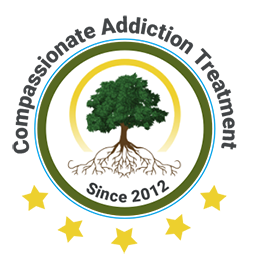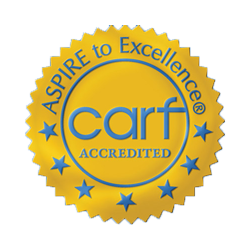Overcome Opiate Dependence Today
Opiate dependency is a powerful trap. Its effect on the brain gradually takes your power of choice away.
How do you know you're dependent? Opiates—prescription or not—should not get you high. People don’t enjoy opiates. They come with constipation and vomiting. Go beyond what's actually needed for pain control, and only then does a high come. So, the high itself is a signal of drug misuse.
If you or a loved one is struggling with opiate addiction and is considering treatment in Arizona, please contact Renaissance Recovery Center at (480) 526-7738 for a Free Opiate Addiction Assessment.
How Does a Person Become Addicted to Opiates?
Repeated a number of times, opiate ingestion can change the reward mechanisms in the brain. Eventually, the person cannot feel normal without the substance—regardless of hurtful consequences for oneself and others.
The risk of harm is serious. Drugs are even more common than alcohol in fatal car accident statistics.
Signs of Opiate Addiction
Taking more opiates, for a longer time, than a person would for medical use. Opiates are typically prescribed for no more than 3-7 days.
- Increased use over time. The brain's endorphins will become slower at activating the body's opiate receptors. A person will need more to feel the desired effects.
- Excessively focusing on obtaining, using opiates; switching from pills to less costly street drugs.
- Continued use in the face of interpersonal stress, which may include arguments with other people about substance use.
- Sleepiness, and a lack of energy to exercise or keep appointments. Experiencing unsuccessful attempts to let go of opiates after facing withdrawal symptoms: diarrhea, sweating, or mood swings.
- Throwing caution to the wind in potentially dangerous situations, such as driving or operating machinery.
- Engaging in unsafe sex.
- Continuing to use the substance despite a worsening of mental health conditions, such as anxiety, bipolar disorder, or depression. (These conditions must be treated simultaneously with addiction treatment, and we can explain more to you in a private and free evaluation.)
Common Concerns with Opiate Dependence
I’m afraid of withdrawals
It is normal to feel that way; most people do. Certainly, there will always be some withdrawal; no matter how long the taper down process. Oftentimes, the fear of withdrawals can be worse than the withdrawals themselves. With proper medical and counseling support, many can break the bondage of opiate dependence in a relatively short period of time.
I don’t know how I’ll manage my pain?
Don’t worry. For many, chronic pain is more manageable without narcotics. Opiate dependence often compounds chronic pain issues. Your doctor can help you find alternative strategies to effectively manage pain. Along with proper education and counseling, many have realized a higher quality of life free of opiates.
How will my life be without opiates?
This is a concern commonly experienced with chronic opiate use. Opiate dependence is more than just physical; many also become emotionally and psychologically dependent on the substance. It is hard to let go without knowing other ways of coping. Opiates may work for a while, but always cause more problems as they begin to take control of people’s lives. There is hope. With appropriate counseling and support, you can have a better life free of opiates.
What if I need more help?
You don’t have to do it alone. Opiate dependence is often a bigger problem to overcome than most realize. This can be hard to accept. Many have tried to quit on their own; sometimes for years. While personal commitment and resolve are necessary, for some these are not enough. Guilt, shame, and embarrassment can also keep people from reaching out. By accepting help, you can find the strength and support necessary to live a happy, opiate free life.
Opiate Addiction Treatment Services
The care and support you need to confront your dependence and begin a recovery that lasts are here.
We apply a proven sequence of treatments:
Detox - in which medical professionals treat clients' symptoms and provide the individual treatment they need in order to successfully complete their withdrawal.
Therapy - We tailor clinical methods to the unique needs of each client. Our outpatient rehab and therapy services are available and can be highly effective for clients with supportive family relationships and friends. Without stopping regular work or studies, outpatients can benefit from partial hospitalization and intensive therapy sessions. Our primary program, covering 60 days, includes group therapy Monday through Thursday, 6 to 9 p.m.
Aftercare - covering 90 days and including weekly therapy. Acquire the tools, skills, and social support you’ll need to sustain your recovery from opiate dependence.
Our Opiate Rehab Program
Renaissance Recovery Center provides safe and confidential counseling services designed to help people overcome opiate dependence in Arizona. Our professional team consists of Doctors and Masters level counselors with more than 50 years of specialized work in chemical dependency. We also add our own personal recovery experience, giving us empathy and compassion for those we seek to help.
Our unique approach offers individualized and customized care to each client; addressing the physical, psychological, emotional and spiritual aspects of addiction. We can help you achieve abstinence and find the path to a life free of opiate dependence. Our services include:
- Intensive Outpatient Groups
- Opiate Dependence Support Groups
- Educational groups
- Individual counseling
- Referrals for medication management
Renaissance Recovery Center is an Outpatient Opiate Addiction Rehab in Arizona
If you or a loved one are suffering from Opiate addiction, it’s time to take steps toward recovery and getting that illness into remission by visiting an addiction treatment center. Renaissance Recovery Center is located in Arizona and fosters healing through Gospel-centered programs and treatment. Many conditions are covered by insurance under mental health provisions. Contact us for a free assessment at (480) 526-7738.











